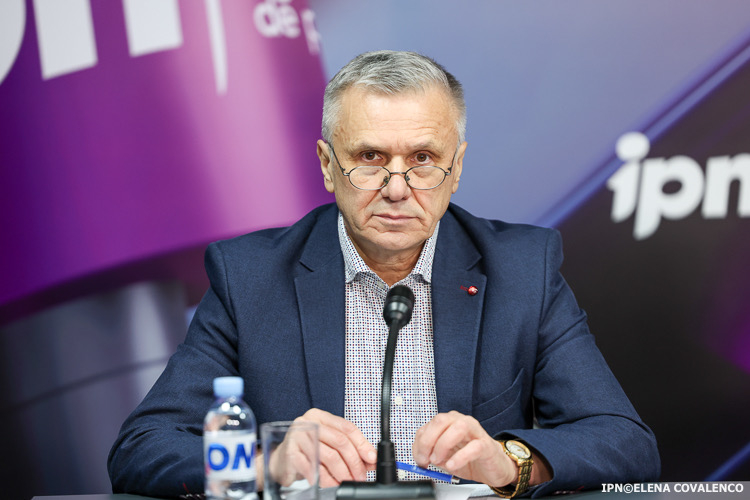
The promotion of unionist ideas in the Republic of Moldova does not go against the Constitution as long as this is done peacefully and within the limits of the law, expert Igor Boţan stated in a public debate hosted by IPN News Agency. He explained that unionism cannot be about "liquidating the state by force or illegal undermining", but is about using constitutional mechanisms (referendum) to propose a change.
Igor Boțan explained that if the idea of unionism is promoted peacefully, through democratic means, within the legal framework and with the ultimate goal of reaching a referendum, then it does not run counter to the Constitution.
"The Constitution’s article saying that parties that plead for the liquidation of the state and speak out against sovereignty and independence, are illegal. This norm of the Constitution is contradicted by Article 142 of the Constitution, which says that the issue of sovereignty, unitary state, neutrality, can be solved only by referendum. If we put the two articles together, it turns out that promoting the idea of unionism, peacefully, within the limits of the legal framework, is not a violation of the Constitution," said the permanent expert of IPN’s project.
Igor Boţan reminded that the National Liberal Party (PNL) was the first political party in the Republic of Moldova that openly assumed, through statutory documents, the objective of union with Romania.
"The PNL was the first unionist party to include the unionism clause in its statutory documents and to promote this cause peacefully. Unionist ideas can only be promoted peacefully, by convincing citizens. Out of 66 parties, we have eight parties that have the Union clause in their statutory documents. This is 11-12%," said Igor Boţan.
The expert underlined the historical character of the unionist current, which is seen as a natural continuation of the National Renaissance Movement of the 1990s. At the same time, he drew attention to a major obstacle in achieving the Union goal: the lack of strong support from Romania.
"The unionist current is a follow-up to the National Renaissance Movement. There is a big problem. Even if 100% of the citizens of the Republic of Moldova would like the Union with Romania, it will not be possible as long as there is no strong support for the Union in Romania," pointed out the expert.
The public debate entitled "What is happening on the unionist political segment?" was staged as part of the series of debates "Developing political culture through public debates". IPN Agency carries out this project with support from the German Hanns Seidel Foundation.












